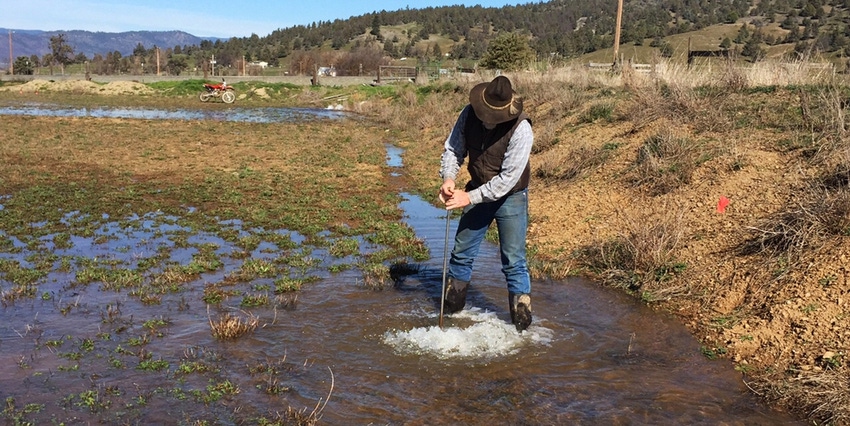March 14, 2017

The UC California Institute for Water Resources (CIWR) recently announced the recipients of six grants to address the most critical water issues in the state. For this program, the Institute leverages funds it receives from the Water Resources Research Act of 1964 through the Department of Interior.
CIWR, which is part of UC Agriculture and Natural Resources, facilitates collaborative research and outreach on water issues across California's academic institutions and with international, federal, state, regional, nonprofit, and campus communities.
Small grants to support initial work will be dispersed to the following:
Suitability of alfalfa for winter groundwater recharge
Helen Dahlke, professor in the Department of Land, Air and Water Resources, UC Davis
One proposed solution for recharging overdrawn aquifers is flooding farmland during the rainy season. Optimizing agricultural groundwater banking for specific crops can be challenging. The goal of this project is to better understand how alfalfa, which is grown year-round, responds to winter flooding.
Fish habitat response to streamflow augmentation
Ted Grantham, UC Cooperative Extension specialist in the Department of Environmental Science Policy and Management, UC Berkeley.
Declining water levels can degrade or eliminate fish habitat during California's summer season. Storing water off-channel during the rainy season can improve flow during the summer. The study is designed to gain a better understanding of the relationship between stream flow and habitat.
Remote sensing of turfgrass response to irrigation
Amir Haghverdi, UC Cooperative Extension specialist in the Department of Environmental Science, UC Riverside.
Turfgrass is common in urban landscapes and provides valuable recreation areas and ecosystem services. This project will help determine the best irrigation strategies for common turfgrass species.
Habitat restoration impacts on water management
Eric Palkovacs, professor in the Department of Ecology and Evolutionary Biology, UC Santa Cruz.
The natural conditions of the Sacramento-San Joaquin Delta have been changed by habitat alteration and non-native predacious fish introduction. This project will examine the interplay between altered habitat and predatory fish, and how they impact native salmon populations.
Evaluating water conservation policy in California
Leah Stokes, professor, Department of Political Science, UC Santa Barbara
During the recent drought, California required that urban water districts conserve on-average 25 percent of their water. While some districts were successful, others failed to meet their target. This project will examine how variation in policy – pricing, messaging and penalties – and drought severity affected water conservation.
Groundwater dynamics after California drought
Amelia Vankeuren, professor in the Department of Geology, Sacramento State University.
As part of California's groundwater management act, some basins were designated as high management priorities. This project will characterize groundwater using age, location and temperature. This information will be valuable for stakeholders creating a groundwater sustainability plan.
An initiative to improve California water quality, quantity and security is part of the UC Division of Agriculture and Natural Resources Strategic Vision 2025.
You May Also Like




